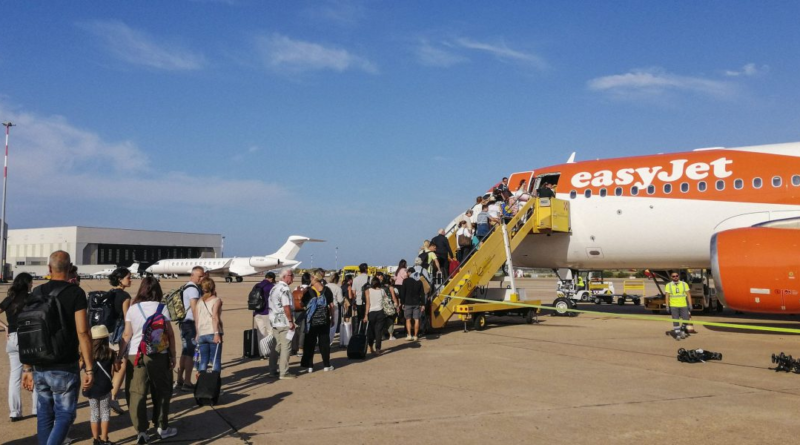Budget airline EasyJet sells an extra 1.5 million tickets with profits up 16% as its summer looks vastly different from struggling rival Ryanair
It’s been a cruel start to the summer for Ryanair, which reported a 46% drop in profits earlier this week as consumers cashed in on deals by pushing ticket bookings to the last minute.
Ryanair also attributed the drop to a part of Easter-time travel falling into its previous quarter ending in March.
When Europe’s biggest airline reports grim results, it’s not a good look for the state of travel, which was expected to boom this summer.
But rival budget airline EasyJet has a very different story to tell. In its third quarter ended June 30, the London-based company reported a 16% increase in pretax profits to £234 million compared to a year earlier. It also saw the number of tickets sold increase by 1.5 million for the current quarter, marking strong demand in peak summer time.
EasyJet’s results point to a diverging outlook for the months ahead just as the Dublin-based Ryanair predicted “materially lower” airfares that will result in lackluster earnings in what could have been the most lucrative period of the year.
“Our strong performance in the quarter has been driven by more customers choosing easyJet for our unrivalled network of destinations and value for money,” Johan Lundgren, EasyJet’s CEO, said in a statement, adding that the company was “on track to deliver another record-breaking summer.”
Airlines have faced pressures from the pullback in consumer spending and changing trends in the travel industry overall. Air France-KLM, for instance, said its revenue would be hit by tourists postponing their holidays as Paris gears up to host the Olympics. Other players, such as Lufthansa and Delta Air Lines, have also warned that fares are under pressure.
Ryanair and EasyJet have fought to price their airfares competitively while maintaining their financial health. Ryanair flew 55.5 passengers during the three months, while EasyJet had 25.3 million of them. Both carriers had strong load factors—a measure of how full their planes are running—of 94% and 90%, respectively. And while the former cautioned that consumers were being “frugal” and pushing back against higher fares, EasyJet told investors that fares were, in fact, resilient.
A few other aspects worked in favor of the London-listed company, according to AJ Bell’s investment analyst Dan Coastworth.
“EasyJet’s latest trading statement also provides some endorsement of its decision to launch a package holidays arm in 2019. It creates broader opportunities to make money and is growing fast,” he said in a Wednesday note.
“Capitalising on its strong position in the airline market, it’s a no-brainer for EasyJet to bundle up flights and accommodation and holidaymakers are clearly putting trust in the business to lay on a decent experience from departure through to return.”
EasyJet’s shares were up 5.2% as of 11 a.m. London time.
Hungarian Wizz Air’s earnings are due next week, which can help shed light on the contrasting early-summer earnings of its low-cost rivals.



